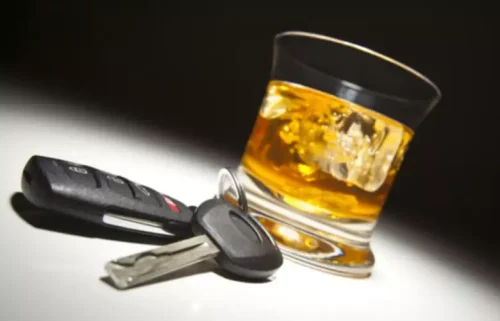
And if you have an underlying health condition such as diabetes or kidney disease, ask your doctor whether it’s safe for you to drink at all. The antibiotics were needed but also gave the patient diarrhea, so his doctors also prescribed a probiotic containing a strain of Clostridium butyricum, which is widely used and has a strong safety profile. Studies suggest it’s found in the guts of about 20% of healthy individuals.
Non-Alcoholic Drink Options
Having a glass of wine with dinner or a beer at a party here and there isn’t going to destroy your gut. But even low amounts of daily drinking and prolonged and heavy use of alcohol can lead to significant problems for your digestive system. According to the 2019 National Survey on Drug Use and Health from the Substance Abuse and Mental Health Services Administration, 69.5% of people in the United States reported drinking within the last year.
What can happen if you drink alcohol before surgery
Moderate alcohol consumption is defined as one drink per day for women and no more than two drinks per day for men. Before we dive into how alcohol thins your blood, it’s important to note what is considered moderate and heavy drinking. Binge drinking and heavy drinking, on the other hand, can increase the risk of excessive bleeding and hemorrhagic stroke, even when not drinking.

What to know about blood thinners and alcohol

Looking to help someone with their alcohol addiction, we have provided some more information for those seeking guidance. This article discusses the effects that alcohol has on the blood in both the short and long term. Keep reading to learn more about this blood-thinning effect, how alcohol interacts with blood-thinning medications, and more. Nicoletta Lanese is the health channel editor at Live Science and was previously a news editor and staff writer at the site. She holds a graduate certificate in science communication from UC Santa Cruz and degrees in neuroscience and dance from the University of Florida. Her work has appeared in The Scientist, Science News, the Mercury News, Mongabay and Stanford Medicine Magazine, among other outlets.

Health Risks and Implications
- Even just drinking regularly for a long time can damage the body and have harmful side effects.
- Specific blood vessels near the heart rely on receptors to keep blood pressure at a healthy level.
- In addition, there was no evidence of nitrative damage in mice bred to disrupt (i.e., knock out) the gene for angiotensin I receptor (AT1-KO) that had been given ethanol for a similar length of time (Tan et al. 2012).
- Even when you’re at home, too much drinking can compromise your physical health, resulting in alcohol poisoning or death.
This antioxidant may reduce harmful cholesterol levels and minimize the risk of blood clots. Blood thinners are medications that prevent blood clots from occurring. Although alcohol thins your blood, drinking instead of taking medication can be dangerous.
Bone marrow disorders, such as leukemia and lymphoma, can also affect how many platelets the body can produce. It’s a good idea to stop drinking at least 48 hours prior to surgery. The single most important thing you can do is to be completely open about your alcohol use. This is true if you had one does alcohol thin blood drink the night before surgery, recently binged, or if you’re alcohol dependent. When it comes to alcohol and surgery, what your doctors don’t know can hurt you. If a higher dose of anesthesia is needed, it can increase the risk of cardiac events, especially if you already have heart problems.
Can someone drink alcohol instead of taking a blood thinner?
- The CDC publishes that excessive drinking contributed to around 90,000 deaths and shortened lifespan of an average of 30 years for those who died from alcohol consumption-related issues between 2006 and 2010.
- This is especially true if you also consume large quantities of alcohol.
- These data suggest that antioxidant defense mechanisms that attempt to protect the heart against oxidative damage appear to be initiated soon after drinking alcohol.
- If you’re ready to face your addiction head-on, and want the best possible help recovering, treatment centers can help.
- Approximately 1 to 2 drinks per day may have no effect on or lead to a slight reduction in stroke events; however, greater daily alcohol levels increase the risk for all stroke events and incident stroke types.
Relationship Between Alcohol and Heart Health





